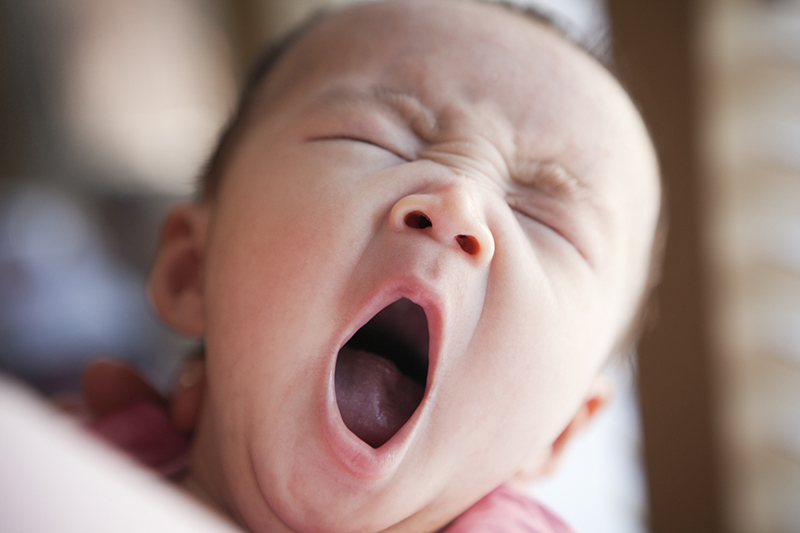Families For Life | Tired Signs in Babies and Toddlers-Babies

Babies and toddlers get overtired easily. When they do, they find it harder to get to sleep. Once you can spot the telltale signs of tiredness, you’ll be able to settle your child to sleep before he gets overtired, grumpy and harder to settle.
Tired signs: why they’re important
Children show they’re tired through changes in behaviour. For example, your child might be suddenly irritable, overactive or demanding.
It’s important to look for your child’s ‘tired signs’. These signs let you know when it’s time to reduce stimulation and start settling your child for sleep. If you wait until your child is overtired, it’ll be harder to settle her.
Newborns: tired signs
Newborn babies will probably get tired if they’ve been awake for 1-1½ hours.
If your newborn is tired, you might see some of the following tired signs:
pulling at ears
closing fists
yawning
fluttering eyelids or difficulty focusing – your baby might even go cross-eyed or seem to be staring into space
making jerky arm and leg movements, or arching backwards
frowning or looking worried
sucking on fingers – this could be a good sign and might mean that your baby is trying to find ways to settle to sleep
Babies and toddlers: tired signs
At 3-6 months, your baby might be tired after 1½-3 hours awake.
At 6-12 months, your baby might be tired after 2-3 hours awake.
At 1-3 years, your child might be overtired if he misses out on his morning or afternoon sleep.
If your baby or toddler is tired, you might see some of the following tired signs:
clumsiness
clinginess
grizzling or crying
demands for constant attention
boredom with toys
fussiness with food
Tired or hungry?
Grizzling and crying can mean your child is tired, but it can sometimes be hard to tell the difference between tired grizzling and hungry grizzling.
If your baby has had a feed within the last two hours and is grizzling and cranky, she’s probably tired. If you’re not sure, offer a feed. If she takes only a little milk and is still grizzly, she needs a sleep.
Reducing stimulation
If your child is showing signs of tiredness, it’s a good idea to get him ready for sleep by reducing stimulation. You can do this by:
taking your child to the place where he usually sleeps
putting toys away
talking quietly and soothingly
closing curtains and blinds
turning overhead lights off – use lamps if you need to
playing music quietly – this will help cut down on background noise.
Making quiet time
Some quiet time before bed in the place where your child usually sleeps will help her settle to sleep.
Quiet time with your child might include a gentle cuddle, a story or a quiet song.
Your child might need only a few minutes of quiet time before he’s relaxed and ready to be put in bed. If your household is noisy and active, your child might need some extra quiet time before it’s time for sleep.
When it comes to sleep, every baby is different. But it can really help to get to know your own baby’s tired signs.
You might need to experiment to find out what works for your baby.
© raisingchildren.net.au, translated and adapted with permission
Explore more